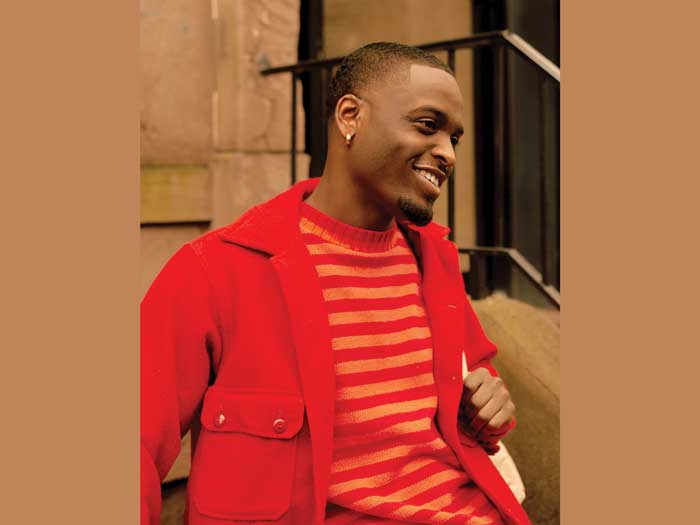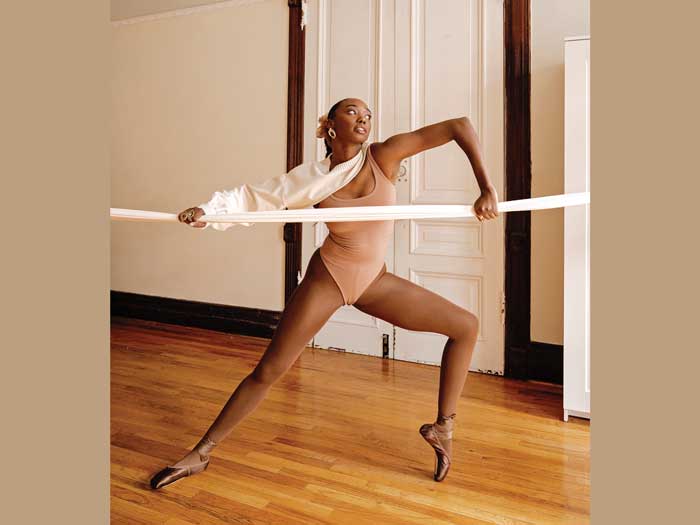Home stretch
 Josef Adamu launched the creative agency Sunday School with one goal in mind: to use storytelling to amplify the identity, culture and experiences of underrepresented communities (Photograph by Kia Marie)
Josef Adamu launched the creative agency Sunday School with one goal in mind: to use storytelling to amplify the identity, culture and experiences of underrepresented communities (Photograph by Kia Marie)
What does “home” mean to you?
That question is at the heart of an exhibit at the Art Gallery of Ontario featuring the work of Toronto creative agency Sunday School—and it’s one that the agency’s founder, Josef Adamu, has spent the last several years working to answer.
Adamu launched the agency in 2017 with one goal in mind: to use storytelling to amplify the identity, culture and experiences of underrepresented communities, with an emphasis on the Black diaspora.
A child of Nigerian immigrants who was born and raised in Toronto, Adamu knows what it means to live one experience, but to see a completely different narrative written about your community. It’s his desire to bridge that gap and to reclaim the power of cultural storytelling.
Through collaborations with brands like Nike, alongside a slew of passion projects that have taken both him and the Sunday School brand across the globe, Adamu has made a name for himself as a champion of diaspora stories—and from May 2023 to May 2024, a selection of those works titled “Feels Like Home” will be put on display at the AGO to mark the sixth anniversary of the agency’s founding.
On a Zoom call from his current home of New York, Adamu talked to Pivot about his journey to finding success, and why nuance and intention are central to his storytelling ethos.
How did the idea for this exhibit come together and what are you going to be showcasing?
First, we have “Hair Appointment,” which is about hair braiding, identity and culture, then you’ve got “Jump Ball” which is about sporting culture and community, and then we have “10 Toes Down” which is more focused on identity and representation. They’re all different, but the way they're tied together is that they all resonate with this idea of the title: feeling like home. “Feels Like Home” is something that is very easy to think about when you read the phrase, but it means so much more than just a physical home. Home is the motherland. But home can also mean a sense of familiarity. There are so many other things that home can tie itself to. And home is also a sense of community.
I even have a little dress code [for the exhibit]. I want everyone to wear what garments remind you of home, whether you're an Indian person or a Jamaican person, Nigerian, Ethiopian, whatever they feel like, at home.
Your work also focuses a lot on reclaiming stories that Black communities typically wouldn't have the opportunity to tell. Why was that important for you to do?
I think it’s just upbringing. I'm born and raised in Toronto to Nigerian parents. My mom and dad are both from Benue state, which is the middle belt of Nigeria, so we've never really been grouped with [any of the major ethnic tribes]. I've always felt like an outcast. I'm Nigerian, but from an ‘other’ state. So, since I was growing up, I've always been like, “Man, I’d love to see more stories from my perspective, or from the perspective of the community I occupy.”
 Woman dancing – Photo by Kreshonna Keane, Ten Toes Down exhibition, 2021 (Photo courtesy of Sunday School)
Woman dancing – Photo by Kreshonna Keane, Ten Toes Down exhibition, 2021 (Photo courtesy of Sunday School)
Sunday School also seems to prioritize nuance and specificity in storytelling. Can you talk about why?
I'm [always] going to do what I feel is most authentic for what I saw growing up in my journey. Almost every project we've done, I've either experienced first-hand, or someone around me has brought it to the table, and we really researched and looked into what the story is behind it.
It's very easy to digest as well. I don't like making things overly conceptual or hard to understand because at Sunday School, we look at ourselves as an educational institution.
And representation is also extremely important. You'll see that 85 to 90% of our projects feature dark-skinned people, and that's because when considering [Blackness] globally, light skin is usually enough. I wanted to change that as well.
What scares you, even after doing this work so successfully the last six years?
I fear being stagnant. I fear sometimes that I'll get stuck in this bubble of Black storytelling from an African perspective only. It’s not that I'm scared that[it is] all I can offer, because I do have a lot of ideas, and I do have tons of things that expand beyond our world and our scope. But I do fear that a lot of the work sometimes represents a specific culture and only that, so I try my best to make sure that the work we're doing has a versatile perspective on it and maybe one day, it can branch off into other things as well. That being said, I'm very confident and happy with the work that we're doing and I will continue to do it for us.
Everything I do is very, very, very Black. Unapologetically Black. It's gotten me where I am today, because I'm literally an ambassador for what I saw growing up.
OPENING DOORS
Find out how Wes Hall, CEO of Kingsdale Advisors and founder of Black North, sees the progress being made toward opening doors that had previously been shut for Black Canadians.